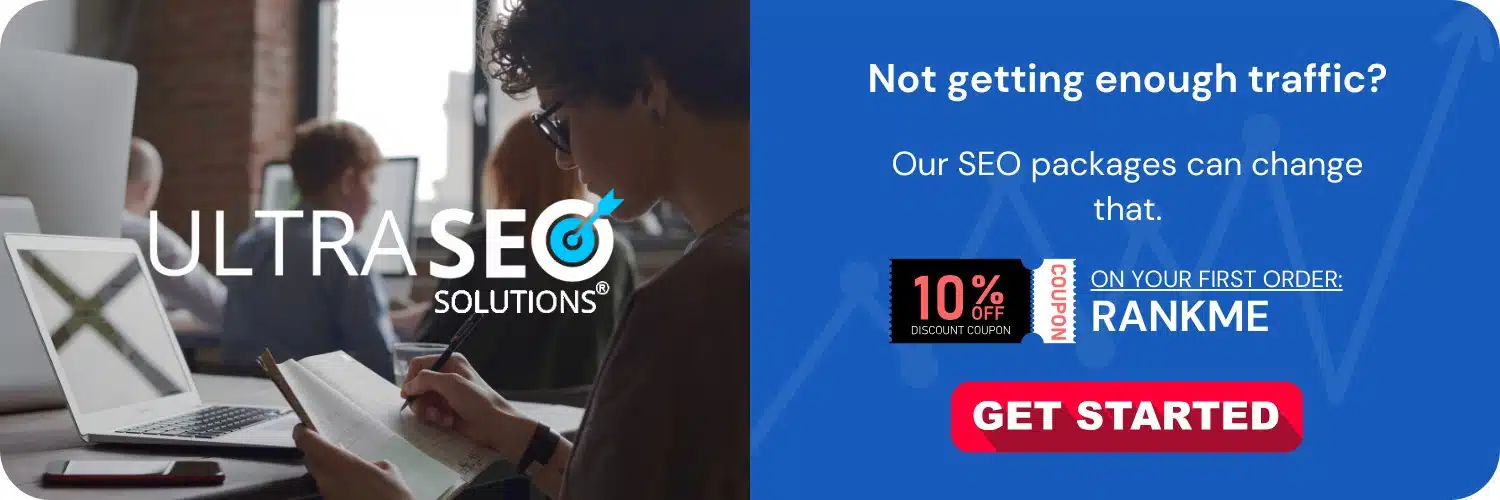
Small businesses have a lot to gain from SEO. At its core, Search Engine Optimization helps increase visibility, which means more traffic and the potential for more conversions. By optimizing your online content, you can create a strong web presence, outrank your competitors in search engine results pages (SERPs), and build a brand that attracts a loyal customer base.
Increasing Visibility and Brand Awareness
For small businesses, the first major benefit of SEO is the increased visibility in search engines. When your website ranks higher in search results, it’s more likely to be seen by users. SEO is about making sure your site is structured in a way that search engines understand and appreciate, thus rewarding you with better positioning.
Targeting the right keywords
By targeting the right keywords that your potential customers are using, you set the stage for your website to appear when these users are in need of the services or products you provide. The more your site appears in relevant searches, the more your brand becomes synonymous with those solutions.
Local search for local businesses
For local businesses, local SEO is a huge part of increasing visibility. This includes optimizing your Google My Business profile and ensuring your local citations are consistent and accurate across the web. This way, when local customers search for services “near me” or within your geographical location, your business is likely to appear at the top of those search results.
Improved User Experience
SEO isn’t just about pleasing the search engines—it’s also about providing a great user experience. By optimizing your site, you’re also improving its usability. This includes ensuring that it’s mobile-friendly, loads quickly, and is easy to navigate.
Mobile optimization
Mobile optimization is critical, especially as more people use smartphones and tablets to search for businesses. A mobile-friendly website will retain visitors better and can therefore help increase your conversions and reduce bounce rates.
Site speed and performance
Site speed is another ranking factor that also impacts user experience. A fast-loading site can improve the overall experience for visitors, making them more likely to stay on your site and explore your products or services.
Cost-Effectiveness of SEO
SEO is one of the most cost-effective marketing strategies for small businesses. It targets users who are actively looking for your products and services online. Unlike traditional marketing, which casts a wide net, SEO allows you to target your niche audience with precision.
High ROI
While SEO does require an upfront investment, particularly if you hire a professional, it often offers a higher return on investment (ROI) compared to other forms of advertising. That’s because once you’ve earned a high ranking in SERPs, you’re not paying for each visitor that comes through organic search, unlike pay-per-click (PPC) advertising.
Long-lasting results
Another financial benefit comes from the longevity of SEO efforts. Where paid ads stop drawing traffic the moment you stop paying, SEO builds upon itself over time. Your visibility and brand authority improve as you continue to optimize your website and content.
Building Credibility and Trust
Ranking high on search engine results pages is often interpreted by users as a sign of credibility and trustworthiness. Small businesses that invest in SEO can slowly build their reputation as authoritative sources within their fields.
Positive user experience as a trust signal
A well-optimized website that provides valuable content and an excellent user experience establishes your business as trustworthy in the eyes of customers and search engines alike. This becomes a self-reinforcing benefit — the more people trust your site, the more likely they are to link to it, which in turn improves your SEO.
Quality backlinks
Quality backlinks are an integral part of SEO and credibility building. When reputable websites link to yours, they effectively vouch for the quality of your content, which can then increase trust among users and search engines.
Attracting the Right Audience
With SEO, you can focus on attracting an audience that is likely to be interested in your products or services. Through the use of particular keywords and creating content that addresses the needs and wants of your target demographic, you can ensure your marketing efforts are reaching the people who are most likely to convert.
Intent-based targeting
SEO allows you to understand and target user intent. This means you’re not just aiming for broad visibility; you’re also attempting to reach users at the moment they are looking to make a purchase or engage a service, which makes them more likely to choose your business over a competitor’s.
Content marketing synergy
Content marketing and SEO go hand in hand. By creating valuable content that’s optimized for both search engines and your audience, you fulfill user queries and needs, which can lead to better engagement and conversion rates.
Measurable Success
With SEO, small businesses have the benefit of being able to measure virtually every aspect of their strategies. Tools like Google Analytics allow you to monitor traffic, engagement, and conversion metrics, so you can continually tweak your strategy for optimal performance.
Trackable ROI
Tracking ROI with SEO is straightforward, giving you insights into the effectiveness of your efforts. By analyzing this data, you can make informed decisions to further improve your performance or shift resources where they’re most effective.
Adapting to market changes
SEO isn’t static; it requires continuous adjustment. This adaptability is an advantage because it allows small businesses to respond to market changes and adjust their strategies in real time, keeping them competitive.
Finishing Thoughts
SEO holds numerous benefits for small businesses that are crucial in the current digital landscape. By increasing visibility, improving user experience, being cost-effective, building credibility, attracting the right audience, and providing measurable success, SEO can be the catalyst for small business growth. Understanding and harnessing these advantages can lead to sustained success and can help small businesses carve out their niche in their respective industries. If you’re running a small business, investing in a robust SEO strategy is not a luxury but a necessity in today’s market, where visibility online can make or break your business.
“`html
Frequently Asked Questions
What is SEO and how does it work?
SEO, or Search Engine Optimization, is the process of enhancing a website to improve its visibility when people search for products or services related to the business in search engines like Google, Bing, and Yahoo. It involves optimizing on-page elements (such as content quality and keyword usage) and off-page elements (like backlinks and social signals) to rank higher in search engine results pages (SERPs), which increases traffic and potential business opportunities.
Why is SEO important for small businesses?
SEO is crucial for small businesses because it helps level the playing field against larger competitors by increasing their online visibility. With a strong SEO strategy, small businesses can reach their target audience more effectively, attract more targeted traffic to their website, and increase their chances of conversion, all without necessarily having to spend large amounts of money on advertising.
Can SEO improve the user experience of a small business website?
Yes, a well-optimized website for SEO often results in a better user experience. A focus on SEO entails ensuring that the website is fast, easy to navigate, and provides valuable content, which is also what users look for. By aligning SEO practices with user experience design, small businesses can keep visitors on their site longer and encourage them to become repeat customers.
What are the cost implications of SEO for small businesses?
The cost of SEO for small businesses can vary widely depending on the scope of the project, the competitive landscape, and the level of expertise required. SEO can be highly cost-effective because it targets users who are actively looking for your products or services, unlike many forms of traditional advertising. While it may require an upfront investment, it often leads to better conversion rates and a higher return on investment over time.
How long does it take to see results from SEO?
SEO is a long-term strategy; therefore, results are not immediate. It can take months to see the full benefits of an SEO campaign because of the way search engines index and rank websites. Typically, small businesses may start seeing noticeable improvements in their rankings and traffic within three to six months. However, SEO efforts should be maintained consistently as search engine algorithms and market conditions change over time.
How can local SEO benefit small businesses?
Local SEO is particularly beneficial for small businesses that operate on a regional level. By optimizing for local search queries, businesses can appear in local search results, including Google’s Local Pack, Maps, and local directory listings. This increases visibility among local customers who are more likely to visit a store or engage services after a local search. Additionally, local SEO helps in building community presence and trust.
What are some key SEO strategies for small businesses?
Key SEO strategies for small businesses include conducting thorough keyword research to identify terms that potential customers are using, creating high-quality and relevant content, optimizing website loading speeds, ensuring mobile-friendliness, building local citations and backlinks, engaging in social media marketing, and regularly monitoring and adjusting strategies based on performance analytics.
Should small businesses outsource their SEO or do it in-house?
Whether small businesses should outsource their SEO or manage it in-house depends on several factors, including the complexity of the SEO campaign, the level of expertise within the company, and budget constraints. Outsourcing can provide access to expert knowledge and potentially faster results but at an additional cost. In contrast, in-house SEO can be more cost-effective and provide more control over the strategy, although it may require a significant time investment to learn and implement SEO best practices effectively.
“`






